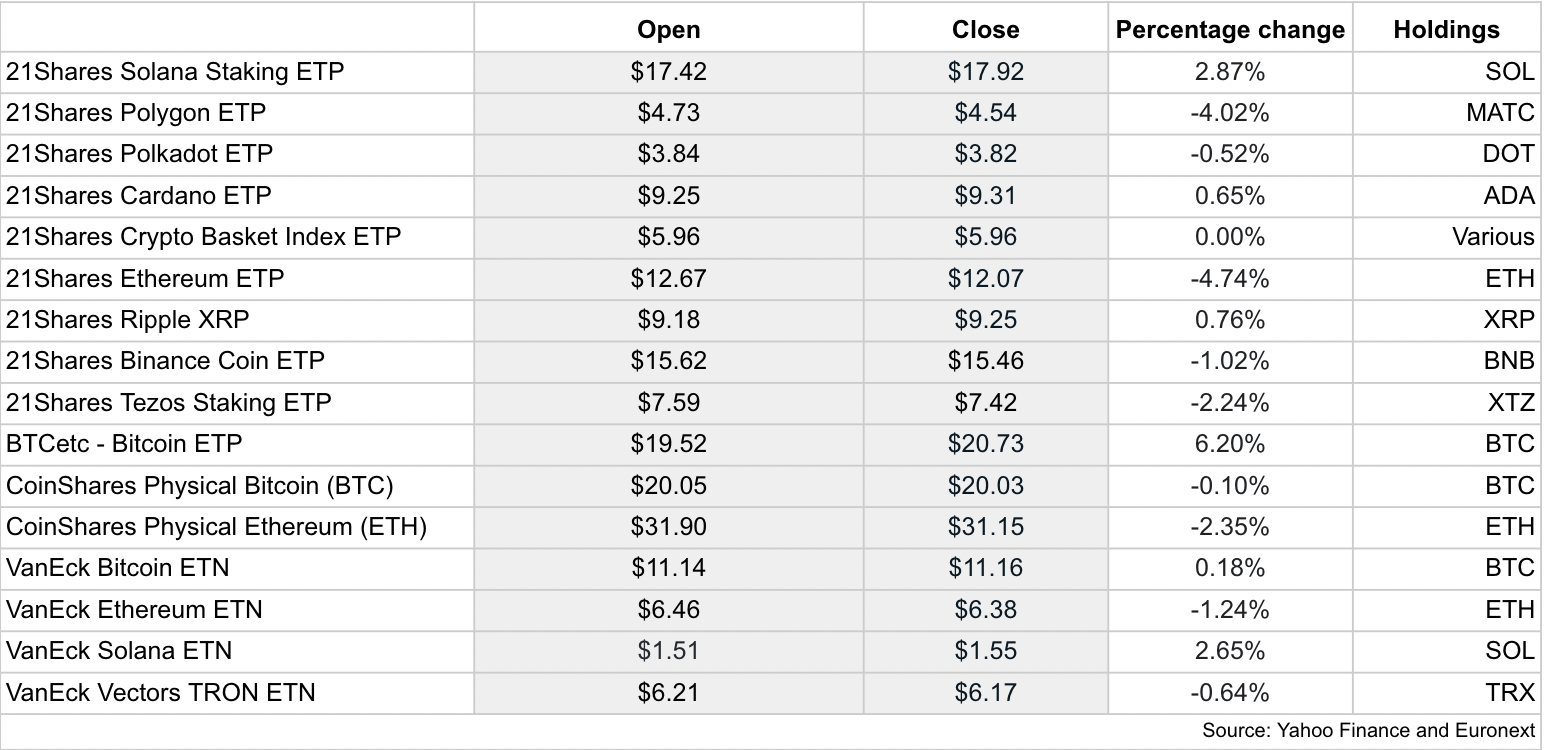Episode 53 of Season 4 of The Scoop was recorded remotely with The Block’s Frank Chaparro and Martin Green, Co-CIO & CEO at Cambrian Asset Management.
Listen below, and subscribe to The Scoop on Apple, Spotify, Google Podcasts, Stitcher or wherever you listen to podcasts. Email feedback and revision requests to podcast@theblockcrypto.com
Panic and fear gripped the crypto market this week as falling prices and market pressure caused two industry titans — hedge fund Three Arrows Capital and lending platform Celsius Network — to face potential insolvency.
While the extended crypto market downturn has caught many market participants offside, one high-frequency trading firm managed to not only survive recent conditions but concluded trading for the month of May up 3.7%.
In this episode of The Scoop, Martin Green, Co-CIO & CEO of Cambrian Asset Management, explains why proper risk management is key to his firm’s success, and why he believes there is still a bright future ahead for the crypto industry.
According to Green, Cambrian’s risk management systems are designed to take the human element out of the equation:
“Humans aren’t designed to make great analytical judgments when their brains are filled with cortisol, serotonin or dopamine. They’re just not. So our systems are designed to take risk off, like sell along, or buy to cover a short if the market goes against us. So if we’re long, the market goes against us to some pre-programed amount… the systems will take risk off so that if the market becomes more extreme, we’ve protected our investors capital.”
Although nearly $500 billion dollars has been wiped from the total crypto market cap so far in June, Green believes the severity of this correction has likely been exacerbated by crypto’s reflexive nature.
As Green explains, “It’s highly likely that digital assets are the fastest reacting to changes in inflation and interest rate expectations, and fast-reacting things often overshoot and then pull back.”
While crypto’s volatility often draws the ire of critics who do not believe it to be a viable alternative to the current financial system, Green thinks it is important to remember is still a new technology:
“I think we have to remember — and we all do in the industry — but people outside the industry have to remember that [crypto] fundamentally… is an early stage technology. Early stage in an eventual possible adoption curve.”
During this episode, Chaparro and Green also discuss:
- What events could trigger a market rally
- Dynamic portfolio construction
- The risk of contagion in crypto
This episode is brought to you by our sponsors Fireblocks, Coinbase Prime & Cross River
Fireblocks is an enterprise-grade platform delivering a secure infrastructure for moving, storing, and issuing digital assets. Fireblocks enables exchanges, lending desks, custodians, banks, trading desks, and hedge funds to securely scale digital asset operations through the Fireblocks Network and MPC-based Wallet Infrastructure. Fireblocks serves over 725 financial institutions, has secured the transfer of over $1.5 trillion in digital assets, and has a unique insurance policy that covers assets in storage & transit. For more information, please visit www.fireblocks.com.
About Coinbase Prime
Coinbase Prime is an integrated solution that provides institutional investors with an advanced trading platform, secure custody, and prime services to manage all their crypto assets in one place. Coinbase Prime fully integrates crypto trading and custody on a single platform, and gives clients the best all-in pricing in their network using their proprietary Smart Order Router and algorithmic execution. For more information, visit www.coinbase.com/prime.
About Cross River
Cross River is powering today’s most innovative crypto companies, with banking and payments solutions you can rely on, including fiat on/off ramp solutions. Whether you are a crypto exchange, NFT marketplace, or wallet, Cross River’s API-based, all-in-one platform enables banking as a service, ACH & wire transfers, push-to-card disbursements, real-time payments, and virtual accounts and subledgers. Request your fiat on/off ramp solution now at crossriver.com/crypto.
© 2022 The Block Crypto, Inc. All Rights Reserved. This article is provided for informational purposes only. It is not offered or intended to be used as legal, tax, investment, financial, or other advice.

